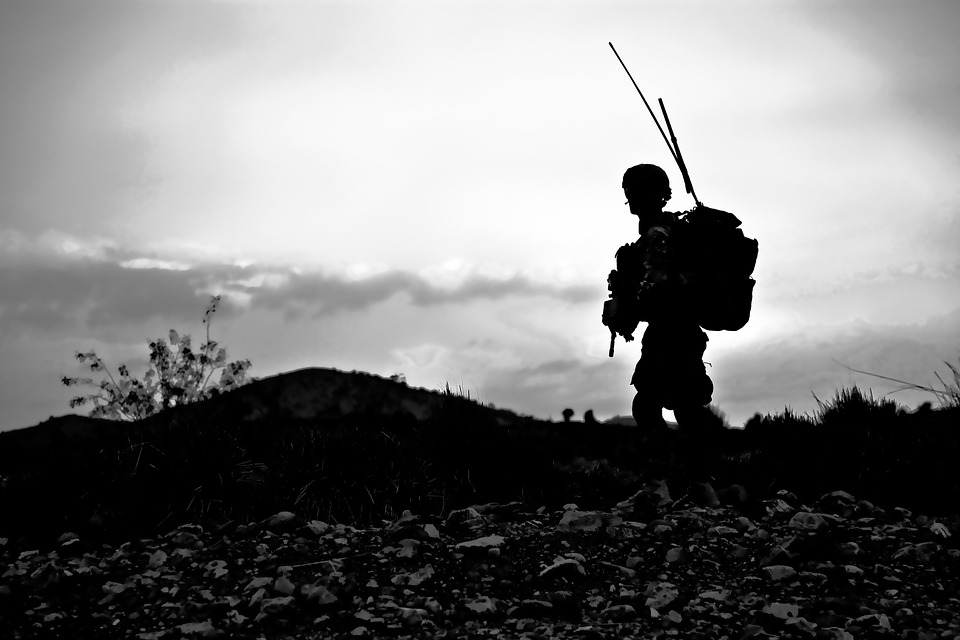Given the widespread discussion related to the retreat of American forces from the war-torn region of Afghanistan has caused many whispers of PTSD to surface. There’s a general fear and concern for veterans, especially since we’ve seen how intensely the experience of war affected the Vietnam forces. The post 9/11 era has also taught us that trauma can manifest itself in various ways—many of which are unhealthy. If there ever was a time in history that made it clear how necessary treating PTSD was, it’s now.
PTSD: Who’s at Risk?
Although anyone can suffer from the dreaded Post Traumatic Stress Disorder, there are some who are at greater risk. These are people who have been in intense situations and have experienced traumatic events. Being exposed to trauma for a prolonged period of time also accounts for the disorder. Particularly vulnerable are people with a history of military combat or those who have been sexually assaulted at some time in their life. PTSD is usually characterized by nightmares, panic attacks, extreme anxiety, and flashbacks of the traumatic event.
Additionally, it can cause the patient to experience thoughts that are on the verge of self-harm. In the worst case scenario, a person suffering from PTSD will eventually be sucked into the downward spiral of sadism, such as the Thousand Oaks Mass Shooter, who was a military veteran.
Mass shootings are on the rise in the United States. Given how vulnerable most Americans—especially children—are to the events unfolding at a national level, it goes without saying that many of us have trauma hidden deep inside of us.
PTSD could be a result of anything traumatic: from a road accident to a near-death experience on a roller coaster.
When Left Unchecked. . .
When left unchecked, PTSD can have drastic long-lasting effects, which include depression, anger issues, loneliness, and severe physical symptoms such as a smoking habit, alcoholism, weight loss, and more.
Not only does this make it impossible for you to carry out the most basic of everyday activities, but it also leads to social isolation. If you have a family that depends on you, especially children, they may suffer on an equal level. Seeking help or treatment is not a sign of weakness—it’s a brave thing to do and something that’ll help you in the long and short run.
Saying Au Revoir to the Ghosts of Future Past
We know it can be difficult to reach out. We know it’s difficult talking about it. We know it’s an experience you’d never want to relive—which is primarily the reason you’ve repressed it for so long. The traumatic experience is probably one of your worst fears. But believe us when we say this: the only way to fight and defeat your worst fear is by confronting it. Living forever in fear won’t help—but cognitive behavioral therapy does so in many ways.
Book a hypnosis session with Rekha today to start your voyage toward recovery. You can also visit Blossom Hypnosis, in Pittsford, NY, if you’d like to schedule a session in person.
Links:
https://www.ptsd.va.gov/understand/common/common_veterans.asp
https://vva.org/programs/ptsd/four-decades-later-vietnam-veteransand-ptsd/
https://www.brit.co/what-ptsd-looks-like-for-sexual-assault-survivors/
https://www.ncbi.nlm.nih.gov/pmc/articles/PMC2323517/
https://www.ncbi.nlm.nih.gov/pmc/articles/PMC4006087/
https://abcnews.go.com/US/link-veterans-mass-shootings-complicated/story?id=59057321
https://abcnews.go.com/US/mass-shootings-increasing-pose-threat-us-expert/story?id=59056868



Be First to Comment